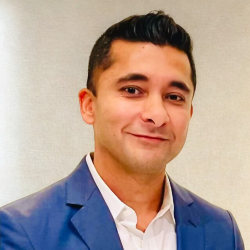As clinical research professionals, we understand the value of patient-donated data. Clinical trials can be time-consuming and sometimes onerous for patients, so we owe it to patients to use their data to the fullest extent possible.
There is a lot of emphasis on using real-world data in drug development, but data from clinical trials are clean, curated, and of high quality. In my view, historical trial data are the largest untapped treasure trove in our industry.
Biopharmaceutical companies are starting to heed the calls from groups like the World Health Organization, the National Institutes of Health, the G7, and patient advocacy organizations to widely share patient-donated data. Clinical researchers really want to make the changes necessary to do this, but we aren’t accustomed to such sharing in non-competitive circumstances. Further, we don’t necessarily have the internal resources or processes to make data sharing easy.
To address these concerns, several like-minded colleagues from biopharma, contract research organizations, technology partners, data sharing platforms, and academic institutions put their heads together earlier this year and launched the Clinical Research Data Sharing Alliance (CRDSA). CRDSA was formed as a collaborative forum for all stakeholders to collectively address the logistical obstacles of sharing clinical trials data.
“There are two fundamental challenges to solve in the data sharing ecosystem,” says Bron Kisler, CEO of CRDSA. “The first is volume—getting enough trials contributed across all therapeutic areas. The second is ensuring that the data contributed have the maximum utility for researchers.” To advance both the quantity and utility of the data shared for secondary research, CRDSA will focus on data privacy, data standards, and researcher education.
Imagine a future in which we can recruit far fewer patients into control arms because we have enough secondary data to create a “synthetic” arm. Or we know in advance how many patients of different racial/ethnic groups we need to enroll because we have used pooled trial data to predetermine the sub-groups. These future scenarios will require advancements in regulatory policy; we need to bring regulators on the journey with us to determine how synthetic or enriched control arms can be acceptable for a registrational study. CRDSA will create the unified, multistakeholder voice needed to effectively advocate for meaningful policy change.
To learn more about CRDSA, visit its website.
Author: Virginia Nido, ACRP-CP, Association Board of Trustees Member for ACRP, and Global Head of Product Development Industry Collaborations at Roche



